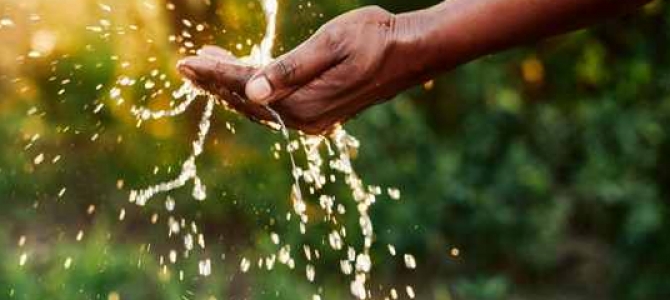 Shopping Cart
Shopping Cart
03 March 2023
The importance of conserving water in New Zealand

Water is a precious resource that we all depend on, yet it is often taken for granted. In New Zealand, water is a critical resource that is essential for the environment, wildlife, agriculture, and human life.
The summer of 2023 has been one of the worst on record for much of New Zealand, with many regions in the North Island suffering from the aftermath of Cyclone Gabrielle, coming just a couple of weeks after record rainfalls across Northland, Auckland, and the Hawkes Bay.
Despite the wet conditions in the North Island, the country is currently facing a water crisis in different regions in the South Island, and conserving water has become increasingly important. In this blog post, we will discuss the importance of conserving water in New Zealand, the current water crisis in different regions, how water scarcity affects the ecosystem, wildlife, agriculture, and human life, and how everyone can contribute to conserving water at home.
Importance of conserving water in New Zealand
Water is a fundamental resource that is essential for life. In New Zealand, water is a precious resource that is used for drinking, agriculture, industry, and recreational activities. However, the country is currently facing a water crisis in different regions, and the demand for water is increasing. As a result, conserving water has become increasingly important to ensure that there is enough water for future generations.
Conserving water in New Zealand is not only important to ensure that there is enough water for future generations but also to protect the environment. New Zealand's ecosystems rely on water to function, and water scarcity can have a devastating impact on the environment. Conserving water can help protect the environment and preserve the country's natural resources.
The current water crisis in different regions
New Zealand is facing a water crisis in different regions, with some areas experiencing severe water shortages. The South Island, in particular, is experiencing a significant water crisis, with many regions facing water restrictions. The North Island has been impacted by water shortages in recent years, however, significant rainfall in the winter of 2022 and then the summer of 2023 has created new issues, especially with flooding, as the waterways struggle to cope with the volume of rain many parts of the North Island has seen.
The water shortage in the South Island has had a significant impact on agriculture, with farmers struggling to irrigate their crops. The shortage has also affected the environment, with rivers and streams drying up, and wildlife struggling to survive.
Water scarcity affects the ecosystem, wildlife, agriculture, and human life
Water scarcity significantly impacts the ecosystem, wildlife, agriculture, and human life. In the ecosystem, water scarcity can lead to a decline in biodiversity, as many species rely on water to survive. The lack of water can also lead to the degradation of ecosystems and the loss of habitat for many species.
Water scarcity also has a significant impact on agriculture, as farmers rely on water to irrigate their crops. The lack of water can lead to reduced crop yields, and in severe cases, crop failures. This can have a significant impact on food security and the economy, as agriculture is a critical sector in New Zealand.
In addition to agriculture, water scarcity also significantly impacts human life. In areas experiencing water shortages, people may have limited access to clean drinking water, which can lead to health problems. The lack of water can also affect hygiene and sanitation, leading to the spread of diseases.
How everyone can contribute to conserving water at home
Conserving water is everyone's responsibility, and there are several ways that individuals can contribute to conserving water at home. Here are some practical tips to help conserve water:
- Fix leaks: Leaks can waste a significant amount of water, so it is essential to fix them as soon as possible.
- Install water-saving devices: Installing water-saving devices such as low-flow showerheads and faucets can help reduce water usage.
- Use a rainwater harvesting system: Installing a rainwater harvesting system can help collect rainwater that can be used for watering plants or washing cars.
- Practice water-saving habits: Small changes in daily habits can make a significant difference in conserving water. For example, turning off the tap while brushing teeth or shaving, using a bucket instead of a hose to wash the car, and only running the dishwasher and washing machine when they are full.
- Choose water-efficient appliances: When purchasing new appliances, choose water-efficient options that use less water.
- Choose drought-tolerant plants: When gardening, choose drought-tolerant plants that require less water.
- Be mindful of water usage: Being mindful of water usage can help reduce water waste. For example, avoid overfilling the kettle and only boiling the amount of water needed.
Benefits of water conservation
There are several benefits of water conservation in New Zealand, both for the environment and for society as a whole. Here are some of the key benefits of water conservation:
Protecting the Environment
Conserving water helps protect the environment by reducing the amount of water that needs to be extracted from rivers, lakes, and other sources. This, in turn, helps to protect the wildlife and ecosystems that depend on these water sources.
Preserving Natural Resources
Water is a finite resource, and conserving it helps preserve this precious resource for future generations.
Saving Energy
The process of treating and transporting water is energy intensive. By conserving water, we can reduce the amount of energy required to treat and transport water, which can help reduce greenhouse gas emissions and lower our carbon footprint.
Reducing Water Bills
Conserving water can help reduce water bills for households, businesses, and farmers, which can help save money in the long run.
Improving Water Quality
Conserving water can help improve water quality by reducing the number of pollutants that enter waterways. This can help improve the health of aquatic ecosystems and make water safer for human use.
Supporting Sustainable Agriculture
Farmers and growers rely on water to irrigate their crops. Conserving water can help ensure that there is enough water available for agriculture, supporting sustainable farming practices and ensuring food security.
Overall, water conservation is essential in New Zealand, and there are many benefits to conserving water. By working together to reduce water use, we can help protect the environment, preserve natural resources, and support sustainable development for future generations.
Is it necessary to conserve water for the future?
Yes, it is necessary to conserve water for the future. Water is a finite resource, and as the population continues to grow, the demand for water is also increasing. Climate change is also having an impact on water availability, with some regions experiencing more frequent and severe droughts.
Conserving water helps ensure that there is enough water for future generations. By reducing water use, we can help ensure that there is enough water for human consumption, agriculture, and the environment. Water conservation can also help reduce the need to extract water from rivers, lakes, and other sources, which can help protect ecosystems and wildlife.
Conserving water is particularly important in New Zealand, where water shortages and drought conditions are becoming more common in some regions. By conserving water, we can help ensure that there is enough water available for all uses, including household use, agriculture, and industry.
In addition, conserving water can also help reduce energy use and greenhouse gas emissions. The process of treating and transporting water is energy-intensive, and reducing water use can help reduce energy use and emissions associated with water treatment and transport.
Conclusion
In conclusion, conserving water is critical in New Zealand, where the country is facing a water crisis in different regions. Water scarcity affects the ecosystem, wildlife, agriculture, and human life, and conserving water is everyone's responsibility. Small changes in daily habits can make a significant difference in conserving water, and it is essential to raise awareness about the importance of water conservation. By working together, we can ensure that there is enough water for future generations and protect the environment and natural resources.
